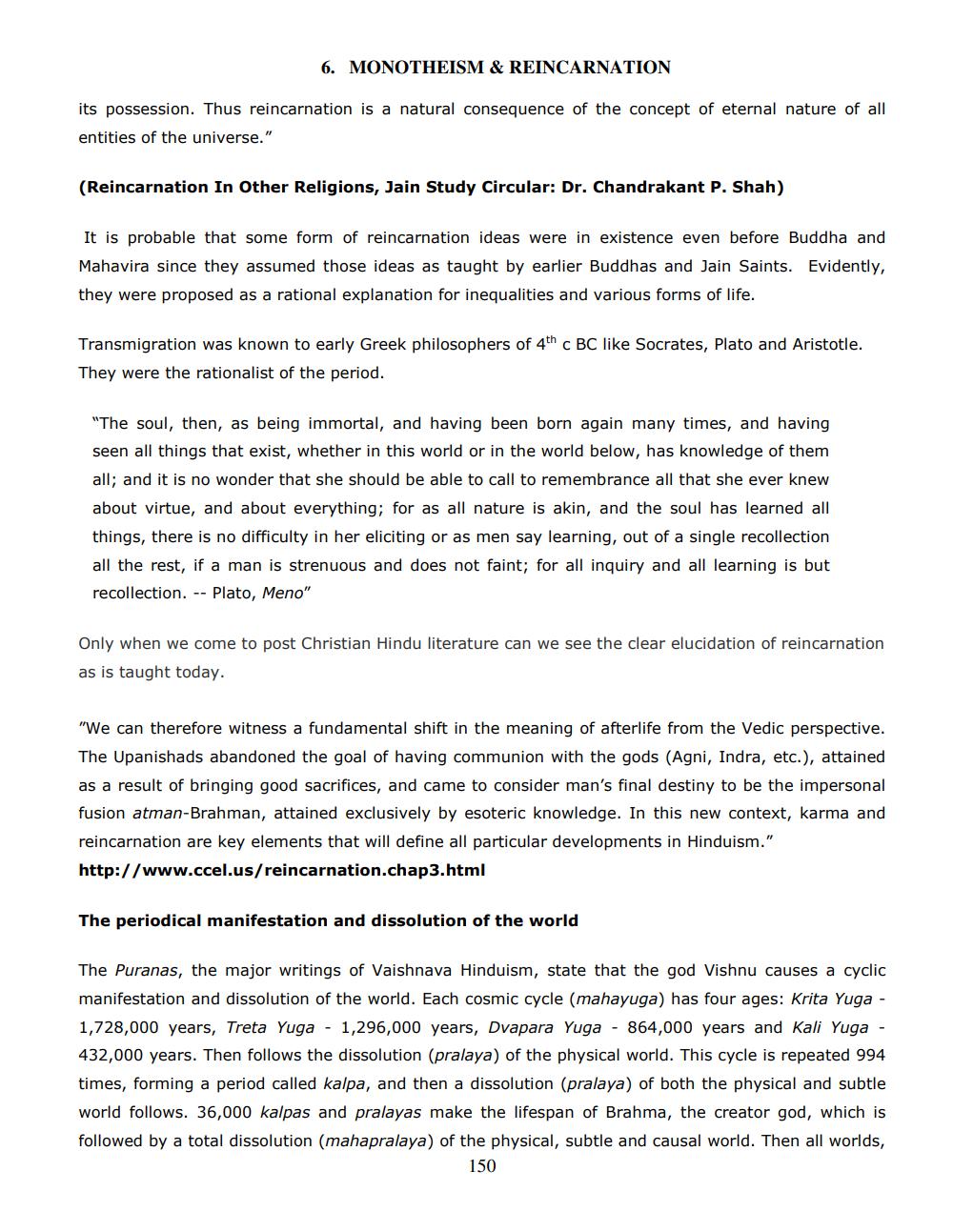________________
6. MONOTHEISM & REINCARNATION
its possession. Thus reincarnation is a natural consequence of the concept of eternal nature of all entities of the universe."
(Reincarnation In Other Religions, Jain Study Circular: Dr. Chandrakant P. Shah)
It is probable that some form of reincarnation ideas were in existence even before Buddha and Mahavira since they assumed those ideas as taught by earlier Buddhas and Jain Saints. Evidently, they were proposed as a rational explanation for inequalities and various forms of life.
Transmigration was known to early Greek philosophers of 4th C BC like Socrates, Plato and Aristotle. They were the rationalist of the period.
"The soul, then, as being immortal, and having been born again many times, and having seen all things that exist, whether in this world or in the world below, has knowledge of them all; and it is no wonder that she should be able to call to remembrance all that she ever knew about virtue, and about everything; for as all nature is akin, and the soul has learned all things, there is no difficulty in her eliciting or as men say learning, out of a single recollection all the rest, if a man is strenuous and does not faint; for all inquiry and all learning is but recollection. -- Plato, Meno"
Only when we come to post Christian Hindu literature can we see the clear elucidation of reincarnation as is taught today.
"We can therefore witness a fundamental shift in the meaning of afterlife from the Vedic perspective. The Upanishads abandoned the goal of having communion with the gods (Agni, Indra, etc.), attained as a result of bringing good sacrifices, and came to consider man's final destiny to be the impersonal fusion atman-Brahman, attained exclusively by esoteric knowledge. In this new context, karma and reincarnation are key elements that will define all particular developments in Hinduism." http://www.ccel.us/reincarnation.chap3.html
The periodical manifestation and dissolution of the world
The Puranas, the major writings of Vaishnava Hinduism, state that the god Vishnu causes a cyclic manifestation and dissolution of the world. Each cosmic cycle (mahayuga) has four ages: Krita Yuga - 1,728,000 years, Treta Yuga - 1,296,000 years, Dvapara Yuga - 864,000 years and Kali Yuga - 432,000 years. Then follows the dissolution (pralaya) of the physical world. This cycle is repeated 994 times, forming a period called kalpa, and then a dissolution (pralaya) of both the physical and subtle world follows. 36,000 kalpas and pralayas make the lifespan of Brahma, the creator god, which is followed by a total dissolution (mahapralaya) of the physical, subtle and causal world. Then all worlds,
150




